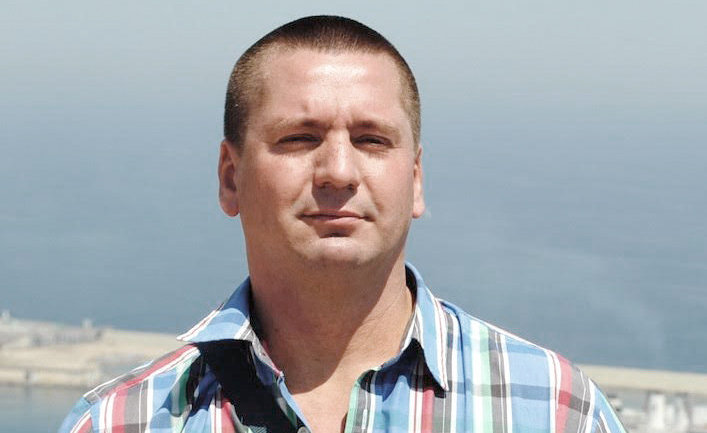
This week the second meeting of the “Council for defence innovation” (Defense Innovation Advisory Board), which was established last spring to accelerate the adoption of latest technologies in the U.S. armed forces. Head of the Council is notorious Eric Schmidt (Eric Schmidt) is the Executive Director of the holding company Google Inc. and former CEO of Google.
The first Board meeting was held on 6 October 2016. Then U.S. Secretary of defense ash Carter (Ash Carter) said that the military needs to stay ahead of its competitors to absorb the culture of innovation and be open to new ideas and partnerships.
Members of the Board apart from Eric Schmidt are such outstanding scientists and entrepreneurs as:
1. Reid Hoffman (Reid Hoffman), co-founder of LinkedIn, entrepreneur and investor in technology start-UPS.
2. William Mcraven (William H. McRaven), Admiral U.S. Navy, retired, former head of the U.S. special operations command, head of the administration of the University System of Texas.
3. Walter Isaacson (Walter Isaacson), President of the aspen Institute, former head of CNN and editor of Time magazine.
4. Jeff Bezos (Jeffrey Bezos), the head and founder of the Internet company Amazon.com the founder and owner of the aerospace company Blue Origin.
5. Jennifer Stick (Jennifer Pahlka), founder and Director of the community of programmers of Code for America and head of Digital service of the United States (U.S. Digital Service).
6. Milo Medin (Milo Medin), Vice-President of Google for the system access.
7. Marne Levine (Marne Levine), chief operating officer of Instagram.
8. Michael McQuade (McQuade Michael), senior Vice President for science and technology in the United Technology.
9. Adam Grant (Adam Grant), a Professor at the Wharton school of business.
10. Richard Murray (Richard Murray), a Professor and a bioengineer at Caltech.
11. Cass Sunstein (Cass Sunstein), Professor at Harvard law school.
12. Deanne Hillis (Hillis, Danny), American inventor, engineer, mathematician, entrepreneur, transhumanist, and writer.
13. Eric Lander (Eric Lander), a scientist, one of the leaders of the project “human Genome”.
14. Neil Degrasse Tyson (Neil deGrasse Tyson), American astrophysicist, doctor of philosophy in physics, writer, popularizer of science.
The Board can be taken even five people, and the Council itself is formed of two years.
Interestingly, even before the first meeting, Council members visited the air force base and the U.S. Navy, visited the ships, submarines, military labs, talked with soldiers of the special forces, with the officers of the Central command, cyber command and special operations command.
That is, the billionaires, famous scientists, the founders of global companies spent their time and energy and tried to understand how military Affairs “on the ground”, and did not build theory from their offices, the cabins of the yachts offices and laboratories.
After their tour, the troops the members of the Council in October submitted its interim recommendations for the Pentagon, and this week during the second meeting have approved them. The U.S. defense Secretary ash Carter was especially pleased that the Council has not only presented a plump reports in hundreds of pages, and was able to communicate clearly face-to-face to convey to the leadership of the Pentagon their thoughts and wishes.
The practice of visiting forces members of the Council will be continued.
The recommendations are interesting, as they come, to put it mildly, not last people in world high-tech, and second, signal the direction in which the US military machine.
Were the following recommendations to the Ministry of defence:
1. to appoint a Director of innovation who will report directly to the Minister of defence and to act as its Advisor;
2. to make computer science a core competency for employees of the Pentagon;
3. to encourage an atmosphere of esperimentado, encouraging those who innovates and offers innovative approaches;
4. to assess cyberassist high-tech weapons of the United States;
5. to stimulate innovations in the field of artificial intelligence and machine learning;
6. to expand procurement of goods are exempt from tax and formal bureaucratic permissions of various kinds, to accelerate the processes of financial security;
7. to increase investment in new approaches to innovations.
8. to improve and facilitate the access of the Pentagon to the code used programs.
9. each command to create divisions on the development of software;
10. to improve throughput and availability of communication networks;
11. reward for the elimination of bureaucracy;
12. to lower the barriers to innovation.
Separately, Eric Schmidt raised the issue of creating vnutriorgannogo of the Internet, which would unite a closed military information of a plurality of available sources. Today, the problem is that the various units of the Pentagon do not share your information, I do not know what information they have themselves or from the other units just lose the information as unnecessary, and do not know how to find the necessary data. By and large, the military, both in leadership and on the battlefield, we need your military Google, where you can instantly find everything you need.
Centralized Internet and artificial intelligence in the military sphere. The more data available for analysis, the more correlations found, the more effective will be the returns from the use of artificial intelligence as a modern trend in the army is unequivocal — it is automation of hostilities.
Other side of the coin is the impossibility of creating a single military databases for reasons of security and secrecy. Information cannot be provided to all within the armed forces, as well as the centralized database will be a tempting target for attacks those hackers and thus become a threat to national security.
Schmidt said that it was necessary to find a middle ground between centralization of information and its accessibility and security.
Another very important point in the recommendations is the provision of military capabilities by quickly editing the code in your programs. Today code is the property of the it contractors of the Pentagon, and to make changes they have to ask the contractors to do it. This practice is extremely unproductive and slow.
With regard to programming as a key competence, the Council proposes to develop a reward system that would encourage the military to learn to program, gain skills in the field of cybersecurity. The Pentagon even offered to pay the tuition of students of computer Sciences in colleges, then they were in the army and applied his skills.
Members of Council are unconcerned about the fact that this month the office will take a new President. Eric Schmidt confirmed that all Council members are ready to work with trump and no one expressed a desire to leave.
Astrophysicist Neil Degrasse Tyson believes that the Council was created to serve the country and not a particular administration: “I Think we all are guided by the higher mission and expect that all this will just continue.”
Tyson also fall said that the Americans have for the next four years came the task to “make America smart again”.







